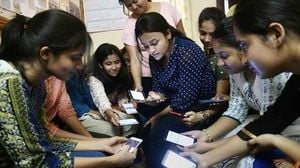Controversies and scandals often follow high-stakes events, and the 2024 Paris Olympics is no exception. Just after the festivities began, several incidents emerged, creating quite the stir.
One of the most significant issues was the withdrawal of American coach Rana Reider, accused of sexual and emotional abuse by Canada's Olympic Committee. His removal came amid revelations of new information linked to his past conduct, leaving athletes, including Olympic champions, without their coach.
Rana Reider had been under scrutiny before the Games. His past relationships and alleged misconduct raised red flags, and after being placed on probation, the Canadian Olympic Committee swiftly acted when fresh allegations resurfaced.
Meanwhile, the gymnastics world was rocked by the medal controversy surrounding U.S. gymnast Jordan Chiles. After her bronze medal win on the floor exercise, the Romanian Gymnastics Federation lodged protests, claiming procedural errors had unfairly inflated her score.
This led to the Court of Arbitration for Sport reversing Chiles' score, returning the bronze medal to Romanian gymnast Ana Barbosu. The decision sent shockwaves through the American camp, with the U.S. Olympic and Paralympic Committee signaling its intention to appeal.
The events didn’t stop there, as another controversy erupted with Canada’s women's soccer coach, Bev Priestman. She was removed following accusations of using drones to spy on opposing teams prior to their matches, provoking widespread outrage.
Canada Soccer announced her suspension as officials launched investigations, leaving players feeling distressed and unprepared. Priestman expressed deep remorse for the situation's impact on her athletes, emphasizing her commitment to integrity.
The ceremony's opening day also saw its share of mishaps. During the much-anticipated parade, South Korea's delegation was mistakenly identified as North Koreans, which generated embarrassment for both the athletes and the IOC.
IOC President Thomas Bach reached out to South Korean officials to apologize following the significant blunder, indicating the serious ramifications of such errors at international events. The incident underscored the intense scrutiny and pressures at play during the Games.
Further compounding the Olympic scandals, some sports commentators faced backlash for their inappropriate remarks. British sports commentator Bob Ballard found himself removed from coverage after making sexist remarks during the women's 4x100-meter freestyle relay competition.
Ballard's comments received immediate condemnation, prompting Eurostar to take action, emphasizing the need for respectful commentary on women's sports. Critics noted how harmful stereotypes like his contribute to broader issues of sexism within sports.
Gymnasts also voiced frustrations over the atmosphere at the events, particularly with the absence of background noise. Simone Biles and fellow gymnast Suni Lee reflected on how the eerily quiet beam routine added pressure and made competing more challenging.
Biles suggested bringing back music during these routines to alleviate the tension, prompting discussions about the expected atmosphere during performances. Such requests illustrated the mental strain athletes endure on the world stage.
Meanwhile, Brazilian swimmer Ana Carolina Vieira was sent home after failing to follow team protocols. The Brazilian Olympic Committee cited her actions as acts of indiscipline, marking yet another controversy linked to athlete behavior.
Vieira's dismissal stoked conversations around athlete conduct and expectations at the Olympics, raising questions about personal responsibility and team dynamics. She expressed disappointment but remained determined to resolve her grievances at the proper time.
Another athlete, Paraguayan swimmer Luana Alonso, faced similar scrutiny, with her committee alleging she created "an inappropriate atmosphere" at the Games, leading to speculation about her departure being voluntary. Alonso, on social media, denied any wrongdoing or expulsion, stating, "I just wanted to make it clear..."
The personal rivalries among athletes also caused friction, as seen between MyKayla Skinner and Simone Biles. After Skinner's criticism of the gymnastics team’s depth, Biles subtly responded with social media commentary, igniting tensions among fans.
With the team winning gold, Biles's remarks were perceived as indirect digs at Skinner’s earlier comments, leading Skinner to plead for the cyberbullying directed at her to cease. The fallout from their exchange underscores the intense comparisons and competition within Olympic sports.
Other athletes reflected on their performances, with some swimmers dismissing rumors about subpar pool conditions contributing to slower race times. They turned down speculation related to the depth of the pool, attributing times to nerves and competitive pressures rather than physical environments.
This collective series of controversies illustrates the complex and often messy backdrop the Olympics represent. From athlete disputes to organizational blunders, the 2024 Paris Olympics show how the glitz can quickly fade amid turbulent waters.
Despite these challenges, athletes remain focused on their goals, hoping to rise above the distractions and controversies. But as history shows, controversies can often overshadow accomplishments and reshape narratives at the Olympics.
With the world watching, these incidents are likely to linger in the memories of fans and participants alike, making the 2024 Paris Olympics unforgettable for reasons beyond the medals awarded.



